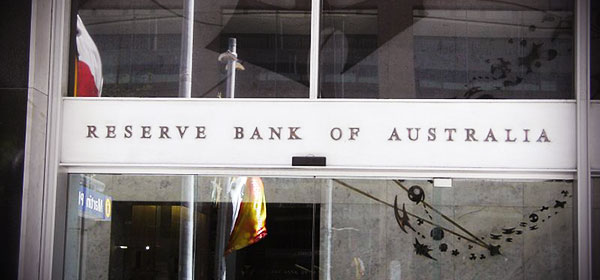The Reserve Bank of Australia (RBA) is tipped to cut the cash rate to a record low, in response to both the latest Australian Bureau of Statistics (ABS) figures which showed a sharp decline in inflation, and the rising value of the Australian dollar.
The unexpected drop in core inflation has fuelled expectations that the RBA may cut interest rates from 2 per cent to a new low of 1.75 per cent at Tuesday’s RBA board meeting.
With consumer prices falling 0.2 per cent in the first quarter, the one-year inflation rate is predicted to drop to a record low 1.3 per cent and core inflation estimated to run at 1.7 per cent over the year – also the lowest rate on record.
It’s the first time the economy has recorded quarterly deflation since the Global Financial Crisis (GFC) in December 2008.
In response, next week the RBA is likely to follow its global peers and lower interest rates, which could spell trouble for those living off investments – especially retirees.
Another factor that may force the issue of a rate cut is the looming Federal Election. Should the RBA decide to cut the rate, it would most likely do it to coincide with the release of the Federal Budget 2016/17, to avoid adjusting rates during campaigning for the July Federal Election.
The rate cut would also be likely as a result of the rising Australian dollar from 68 cents earlier this year to around 76 cents this morning. With foreign governments doing all they can to increase their exports by keeping their own currency at an affordable rate, Australia’s rising dollar leaves us in the precarious position of our own exports being too pricey for overseas buyers, adversely affecting our balance of trade and further damaging our economy.
And although the cash rate is tipped to drop to 1.75 per cent next Tuesday, some economists are predicting further cuts by the end of the year. Su-Lin Ong, the Chief Economist and Head of Australian Research at RBC Capital Markets believes the RBA will cut the cash rate even further, to another record low of 1.5 per cent by year’s end.
Read more at www.abc.net.au
Read more at The Australian
Opinion: Low rates may ruin retirement
The news of lower interest rates will make living off retirement investments and superannuation a lot more difficult for most Australians, placing additional pressure on an already stretched retirement income system.
Retirees may have already noticed the warning signs, particularly after RBA Governor Glenn Stevens declared, earlier this month, that continuing lower rates will have a negative effect on retirement incomes, as well as making it more difficult for those saving for retirement.
Retirees living off the interest earned from investments and superannuation will feel the pinch most of all, as lower interest rates mean lower returns. This may force some to take bigger risks in order to live a more comfortable retirement, or even preserve their current standard of living.
So, how do you protect your retirement?
Many financial planners are advising that retirees do take bigger risks for higher returns, most likely through the stock market and property investment. On average, shares still offer around six per cent annual returns, which is not world-beating, but still much more than interest rate returns.
The RBA cutting the cash rate may be the right thing to do for the economy, but it certainly does not do retirees any favours. It’s one thing to advise retirees to take bigger risks with their money but, as we have learned in the past with the collapse of West Point, Storm Financial and Trio Capital, does the risk of losing everything outweigh the potential reward of short-term financial gains?
At the end of the day, for retirees, spending less means saving more. Retirees have no control over interest rates, but they do have control over what they save and spend. This may sound like common-sense advice, but what of the one-third of pensioners already living in poverty? Once again, we see further evidence that, to a great extent, the risk of retirement is placed on the individual, putting many between a rock and a hard place.
And what of those who are planning retirement? For those under 45, paying off mortgages quickly will mean they can instead put that money towards saving for retirement.
The bottom line is that, with the RBA predicting that interest rates will stay very low for the long term, most retirees will simply have to tighten their belts and refine their lifestyle in order to have enough money to live off in the long run.
Do you worry about the lower cash rate? How will it affect your retirement? Do you have any advice for others as to how they can better manage their retirement income?
Related articles:
Could annuities save your retirement?
Budget 2016/17 – what do you want to know?
How the PM plans to tax super

